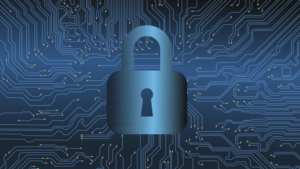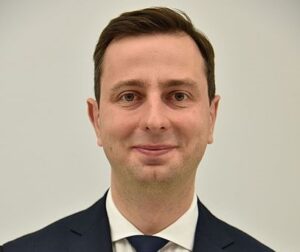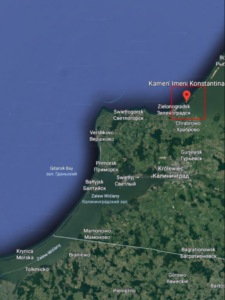For many years the conversation about security was mostly focused on its military dimension. The emergence of new, previously unknown threats is changing the policies in this regard. Cyberspace is one of those challenges.
The 3rd European Cybersecurity Forum CYBERSEC 2017 took place at the beginning of the week. The meeting in Kraków was a great a opportunity to talk about the size of threats in the cyberspace and ways to deal with them. The conference was organized only a week after the Tallinn Digital Summit where heads of states and governments discussed the most important challenges facing Europe’s digital future. The event in Kraków continued those conversations.
„Cyberspace changed everything. It is a foundation of almost every part of our life,” Joanna Świątkowska, expert from the Kościuszko Institute, which organized the event, said during the opening remarks. „It not only impacts the environment, but is also evolving. If we depend on the virtual world to such a high degree, identifying the main threats is our basic duty,” she added.
Cyber security team at the PM’s Chancellery
This duty has been acknowledged by the Polish government. Prime Minister Beata Szydło, who attended the opening of the conference, announced a new analytical team for cybersecurity, which will be coordinated by Paweł Szefernaker. In her opinion, being a modern prime minister means having the right expert backup, which will allow her to coordinate the government and stay on top of the changing information environment.
In an interview with BiznesAlert.pl, Paweł Szefernaker stated that the there was a number of institutions that deal with the issues of cybersecurity in the state apparatus. In his opinion strategic communication needed new solutions. „Cybersecurity includes elements of information war and strategic communication is a very important element here. We need to coordinate this at the level of the Prime Minister’s Chancellery,” he said.
Colonel Grzegorz Małecki, former head of the Foreign Intelligence Agency, currently an expert at the Casimir Pulaski Foundation commented on Szydło’s statements in an interview for BiznesAlert.pl. In his opinion it was the first time she had ever spoken about the fact that the state needed to attend to matters related to cybersecurity.
The importance of cyberspace in the context of state security was also stressed by professor Krzysztof Szczerski, Chief of the Cabinet of the President. He assured the government had President Andrzej Duda’s full support in this regard.
„This area links political issues with basic values we should be protecting,” he said. In his opinion today it was vital to attend to the cybersecurity of democratic processes, because they were at risk of, e.g., lack of transparency. During his speech he also said that thanks to cybersecurity Poland could become a technological and business leader.
„A business and technological leader in cybersecurity can emerge from the Three Seas Initiative,” he said.
Cyber force
During the Congress, cyberspace was also scrutinized from a military perspective. Antoni Macierewicz, the Minister of Defense, announced that Poland would establish a cyber force with thousands of soldiers. Additionally, he is planning to strengthen the cryptology team and a plenipotentiary for cybersecurity has been already appointed. The ministry is planning to spend PLN 2 bn to carry out those plans.
An innovation platform for cybersecurity
CYBERSEC also gave a boost to cooperate to strengthen security in cyberspace. To face the challenges and opportunities offered by the cybersecurity market, representatives of 14 regional cybersecurity centers from 10 countries established a Global Innovation Platform for Cybersecurity (Global EPIC).
According to Robert Siudak, Kosciuszko Institute’s analyst dealing with innovation and investment in the cybersecurity sector, the Global EPIC will be the first step to create a platform that would connect various cybersecurity innovation ecosystems. He also stressed that the engagement of „local systems, not governmental bodies,” was of utmost importance. The platform will be open to everyone who will want to share its objectives. „We see a huge growth potential. Thanks to representatives from Poland, Israel and the US. We want to attract about fifty signatories in the next two years,” Siudak concluded.
Cybersecurity and the energy sector
During the conference, the Kościuszko Institute presented a report on the security of the energy sector in cyberspace. The Institute’s analysts warned that this industry is the second most attacked sector after public administration. As many as 16 percent of cyber attacks is directed at that industry.
According to the experts, the Polish energy sector shoud engage even more in creating a comprehensive system and implementing a comprehensive approach to the establishment of a cybersecurity culture.
„The energy sector is bearing a lion’s share of responsibility for ensuring security because of the potentially catastrophic results of a cyber attack on infrastructure, health and lives of citizens, the functioning of the economy and the country’s military potential. This is why it is so important to treat this issue as a priority by all entities that participate in the market. I am convinced that the report is an important voice in the discussion on cybersecurity in our country, and that its conclusions will become a significant reference point for stakeholders responsible for the defense of Poland, especially the energy sector, against cyber threats,” said Dominik Skokowski, expert from the Kościuszko Institute responsible for the report.








